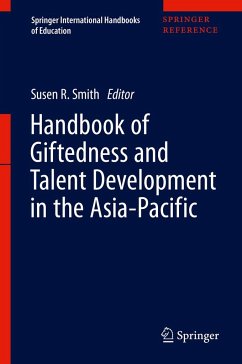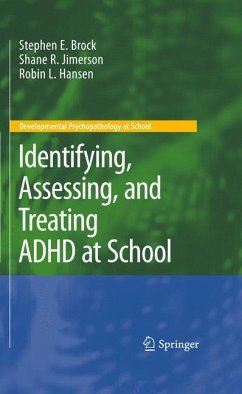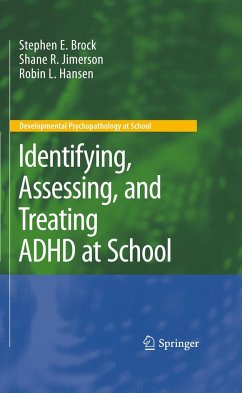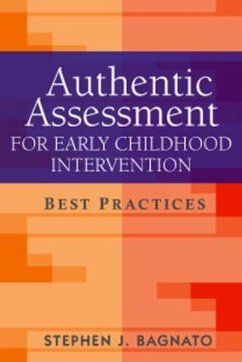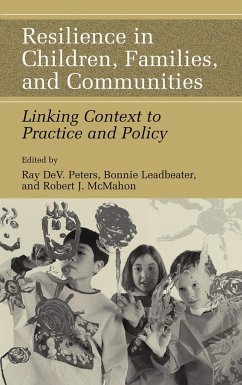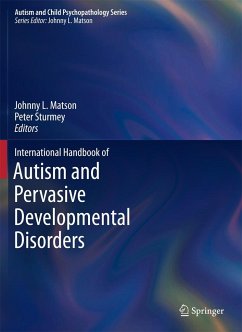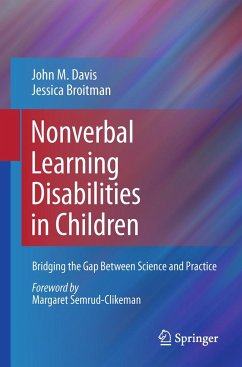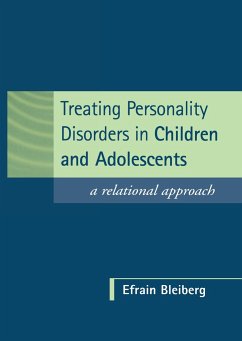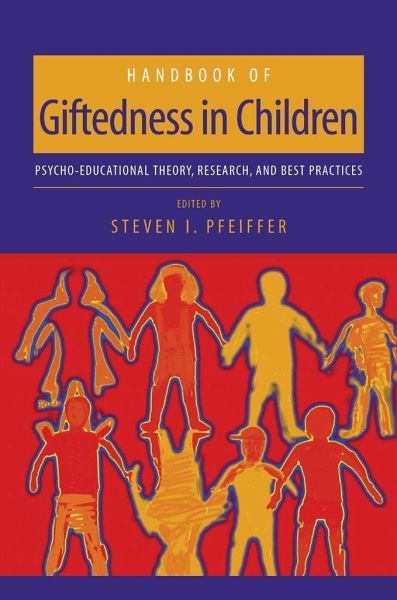
Handbook of Giftedness in Children
Psychoeducational Theory, Research, and Best Practices
Herausgegeben: Pfeiffer, Steven I.

PAYBACK Punkte
57 °P sammeln!
Mention "special needs children", and most people think of students struggling to overcome learning and physical disabilities as well as problem behaviors that interfere with achieving full academic potential. But there is a hidden population of special needs children - the gifted and talented - and their teachers, parents, and other professionals are often not well equipped to respond to their unique academic and developmental needs.In one comprehensive resource, the Handbook of Giftedness in Children brings together leading experts from the fields of psychology and education, combining theor...
Mention "special needs children", and most people think of students struggling to overcome learning and physical disabilities as well as problem behaviors that interfere with achieving full academic potential. But there is a hidden population of special needs children - the gifted and talented - and their teachers, parents, and other professionals are often not well equipped to respond to their unique academic and developmental needs.
In one comprehensive resource, the Handbook of Giftedness in Children brings together leading experts from the fields of psychology and education, combining theory and applied empirical research on such crucial topics as conceptualization, types of intelligence, developmental considerations, and ethical and legal concerns. Particular attention is given to social and family contexts, and evidence-based strategies and interventions offer solid guidelines on assessment, curriculum design, and encouraging and nurturing talent - from preschoolthrough adolescence.
Sample topics include:
Approaches to screening and assessment, including IQ and other testsThe gifted child's social world, from peer relationships to gender issuesSpecial issues of gifted but disadvantaged studentsProblems and interventions specific to families with a gifted childCareer counseling, planning, and mentorship
This volume is an essential resource for anyone working with gifted and talented children, including clinical child and school psychologists, educators and other allied professionals as well as child psychiatrists, family therapists, social workers, and pediatricians and other healthcare professionals. It also serves as an invaluable guide for graduate students in these and related fields.
In one comprehensive resource, the Handbook of Giftedness in Children brings together leading experts from the fields of psychology and education, combining theory and applied empirical research on such crucial topics as conceptualization, types of intelligence, developmental considerations, and ethical and legal concerns. Particular attention is given to social and family contexts, and evidence-based strategies and interventions offer solid guidelines on assessment, curriculum design, and encouraging and nurturing talent - from preschoolthrough adolescence.
Sample topics include:
Approaches to screening and assessment, including IQ and other testsThe gifted child's social world, from peer relationships to gender issuesSpecial issues of gifted but disadvantaged studentsProblems and interventions specific to families with a gifted childCareer counseling, planning, and mentorship
This volume is an essential resource for anyone working with gifted and talented children, including clinical child and school psychologists, educators and other allied professionals as well as child psychiatrists, family therapists, social workers, and pediatricians and other healthcare professionals. It also serves as an invaluable guide for graduate students in these and related fields.



